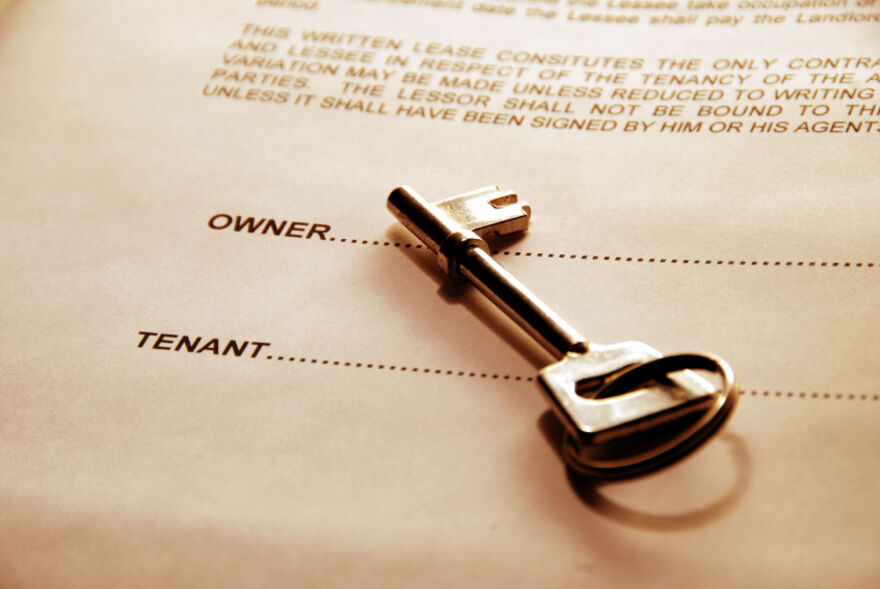It’s no secret that times are tough for high street tenants, with rising business rates and falling footfall. In light of this, retail tenants may be looking to consolidate their assets by closing down premises and terminating any obligations under their leases. Sometimes a tenant or its administrator may try to do this by manoeuvring its landlord into a surrender by operation of law and a landlord may inadvertently accept the position without being fully aware of the consequences. We are going to explore the risks of informal surrenders to landlords and how a landlord can protect itself against them.
Sadly, it is no longer a surprise to see a once-loved household name struggling on the high street. Such a tenant or its administrator (or equivalent) may look to reduce its liabilities in as quick and straightforward a way as possible. Commercial lease liabilities often represent a significant outgoing for companies and a struggling tenant will seek to reduce this in any way it can. Negotiating a formal surrender by deed direct with a landlord is an option but a tenant would likely have to pay a significant premium to its landlord if there is a significant proportion of the term left to run. To avoid this, a tenant may attempt to bring about an informal surrender of its lease known as a surrender by operation of law.
Surrender by operation of law entails a tenant vacating the premises, returning the keys and writing to the landlord or its agents stating that the lease has been surrendered. If a landlord takes back possession of the premises or otherwise acts in a way that the law recognises as inconsistent with the continuation of the lease, a surrender by operation of law will be inferred and the lease brought to an end prematurely.
For a landlord, inadvertently accepting a surrender can be very damaging for a number of reasons:
• Repossession of the property triggers liability for business rates and other property costs for the landlord;
• Solvent guarantors and former tenants will be released from future liability;
• Obligations on guarantors to take a new lease will terminate along with the lease; and
• The landlord will be stuck with any sublettings, lawful or otherwise, entered into by the tenant before the surrender.
The tenant would technically remain liable for any outstanding rents and prior breaches of the lease, including dilapidations, but a landlord might struggle to recover these from a tenant in financial trouble.
For landlords, it is therefore imperative to avoid inadvertently accepting a surrender. Surrenders by operation of law require the conduct of both landlord and tenant to amount unequivocally to an acceptance that the tenancy has ended.
The 2016 case of Padwick Properties Limited v Punj Lloyd Limited illustrates the steps a prudent landlord should take if its tenant attempts a surrender by operation of law.
In this case, an administrator delivered the keys to the landlord’s solicitor, stating that the premises were vacant and asserting that the landlord was from then on responsible for the safety and security of the premises. The tenant later went into liquidation and the lease was disclaimed.
The landlord had made it clear in writing that by receiving the keys, it had not accepted a surrender, and that its solicitor had no authority to accept a surrender on behalf of his client. Although the locks were changed to secure the premises, this was not done to exclude the tenant or its licensee, but to protect the vacant property from damage. The property was later marketed for re-letting.
Ultimately the court ruled, some five years after the tenant vacated, that the lease had not been surrendered. This allowed the landlord’s claim against the tenant’s guarantor to proceed and the court ordered the guarantor to take a new lease and pay around £4 million for the arrears or rent, interest and business rates liability.
This case demonstrates that a landlord wishing to avoid allegations that its conduct amounts to acceptance of a surrender should make it clear to the tenant, in writing and immediately, that -
1. It is not accepting the purported surrender,
2. It is accepting the keys only for the limited purpose of protecting its own interest, and
3. For additional protection, acceptance of the keys is without prejudice to the continued existence of the lease.
A landlord may –
• Advertise the property for re-letting (once it has been re-let with the tenant’s consent, the surrender will become effective), and
• Carry out any acts which are consistent with the landlord’s rights under the lease – for example, entering the premises to inspect or repair. But it must ensure that it does not go further, and use the premises for its own benefit.
Any conduct that is objectively inconsistent with the continuation of the lease will give rise to a surrender by operation of law, leading to significant adverse consequences for the landlord so if you are unsure about what to do in this situation, please contact Elizabeth Thomas or visit our Commercial Property page for more information or to ask a question.
The information on this site about legal matters is provided as a general guide only. Although we try to ensure that all of the information on this site is accurate and up to date, this cannot be guaranteed. The information on this site should not be relied upon or construed as constituting legal advice and Howes Percival LLP disclaims liability in relation to its use. You should seek appropriate legal advice before taking or refraining from taking any action.

